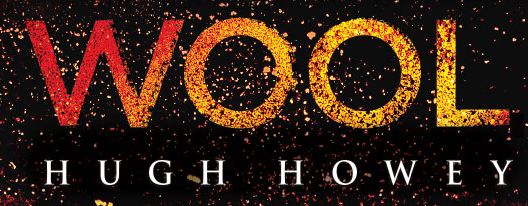
While working in a bookstore in Boone, North Carolina, back in 2011, a 36-year-old college dropout named Hugh Howey started writing a series of sci-fi novellas called Wool. His stories were set in a postapocalyptic world where all human survivors live in an underground silo, a microsociety where resources are so scarce that one person has to die before another can be born. Howey had already published a book with a small press, but he wanted to retain creative control, and he didn’t want to go through the arduous process of finding an agent. So he decided to put out the new books himself, selling digital downloads and print editions through Amazon. In the first six months he sold 14,000 copies. Each new installment met with immediate enthusiasm. Within hours he’d receive emails from readers hungry for more.
By January of last year, agents were calling Howey, looking to publish the books through more established channels, but he was reluctant. At that point, the Wool series was already making him close to $12,000 a month. Nelson Literary Agency founder Kristin Nelson won Howey over when she admitted that she wasn’t sure traditional publishing could offer him anything better than what he was doing on his own. (When she recounted this remark at a recent industry conference, the publishing professionals in the audience shifted uncomfortably in their chairs.) By May, Wool was bringing in $130,000 a month, and Howey and Nelson had sold the film option to 20th Century Fox and Ridley Scott. A couple of publishers made seven-figure offers for the rights to sell the book in hardcover, paperback, and ebook, but Howey and Nelson turned them down. He’d make that much in a year of digital sales alone.
Then Simon & Schuster’s president sent Nelson an email that opened the door to a six-figure deal for print rights only. It was an extraordinary concession—the publisher would agree to put its full marketing muscle behind Wool despite having to forgo the ebook revenue stream that has generated the bulk of the series’s earnings. It’s often said in publishing that with a blockbuster book, everybody wins. But with Wool, it’s Hugh Howey who has won biggest.
He also recently did a Reddit AMA, with a follow-up blog post with advice for writers.
The stigma is gone. Self-publishing is the beginning. For many, it will be the end. The moment the stigma disappeared among traditional publishers (i.e. they began signing already-published books to major deals) it meant the top-down approach to publishing flipped upside down. Think about it. Self-publishing used to mean the death of a book. Now, traditional publishing is the more likely death of a book. This is possibly the most important thing I’ll ever explain. Follow along.
The vast majority of books traditionally published never earn out their advance. They go out of print. They are now dead. This never happens to a self-published work. It can only go up, either in sales or by being picked up in a deal that you choose. The top-down approach is one where you leave options open. Self-publishing leaves all options open (it didn’t used to). Traditional publishing leaves almost no options open (this hasn’t changed). The day self-published bestsellers were mined for traditional deals, everything changed. Don’t trust people with old information who tell you otherwise. Those with the most experience in this business often have the worst advice. That’s not always true, of course, but the two do not correlate. Beware those who think they do.
Get an Editorial Review | Get Amazon Sales & Reviews | Get Edited | Get Beta Readers | Enter the SPR Book Awards | Other Marketing Services






















Leave A Comment